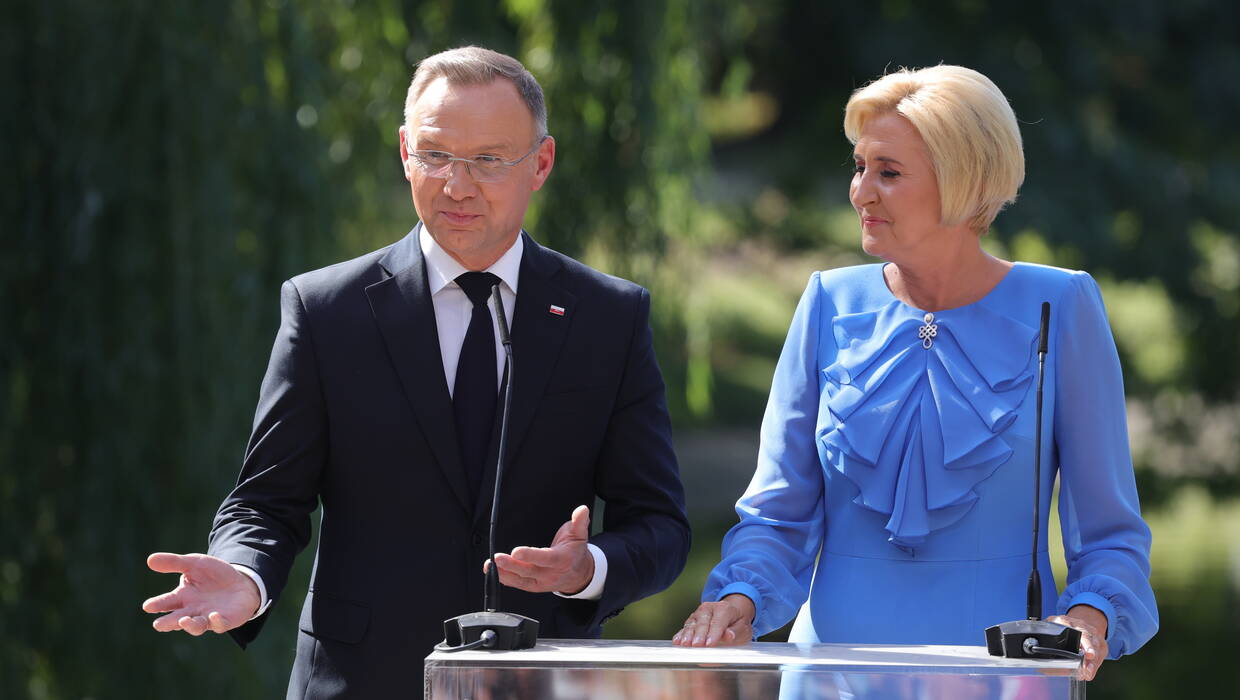
This year 'Kordian' by Polish Romantic-era playwright and poet Juliusz Slowacki was read aloud as part of the readership promotion campaign in schools, libraries and other public institutions countrywide and abroad.
The drama written by Slowacki in 1833 offers the poet's reflections on the causes of the failure of the uprising against the partitioning powers in November 1830, which had initially filled Poles with hope for having an independent country.
When inaugurating the event in Warsaw's Saski Garden on Saturday morning, President Andrzej Duda said that "Kordian is a drama of action towards independence."
"Considerations about the readiness to fight for an independent homeland until the very end are particularly relevant today, when we see that just beyond our borders such a fight is being fought,” Duda added, referring to the war in Ukraine.
During the Warsaw event, besides the president and his wife Agata Kornhauser-Duda, fragments of the drama were read by popular film and stage actors.
Simultaneous readings were held in other Polish cities and in 60 countries across the world, according to the President's Office.
Under the patronage of the Polish president, the National Reading campaign began in 2012 with a reading of "Master Thaddeus" (Pan Tadeusz) an epic poem by Poland's 19th-century national bard Adam Mickiewicz.
Works publicly read in previous years in Poland and abroad included Slowacki's another romantic drama "Balladyna" (1834), writings by 19th-century satirist Aleksander Fredro, Trylogia (The Trilogy) from 1884-1888 and the Nobel-winning Quo Vadis (1896) by novelist Henryk Sienkiewicz, Lalka (The Doll) from 1890 by novelist Boleslaw Prus, Wesele (The Wedding), an allegorical play from 1901 by Stanislaw Wyspianski, Moralnosc Pani Dulskiej (The Morality of Mrs Dulska), written by Polish playwright Gabriela Zapolska in 1906 and Przedwiosnie (The Spring to Come) a neo-romantic novel by Stefan Zeromski from 1924. (PAP)
mr/jd



